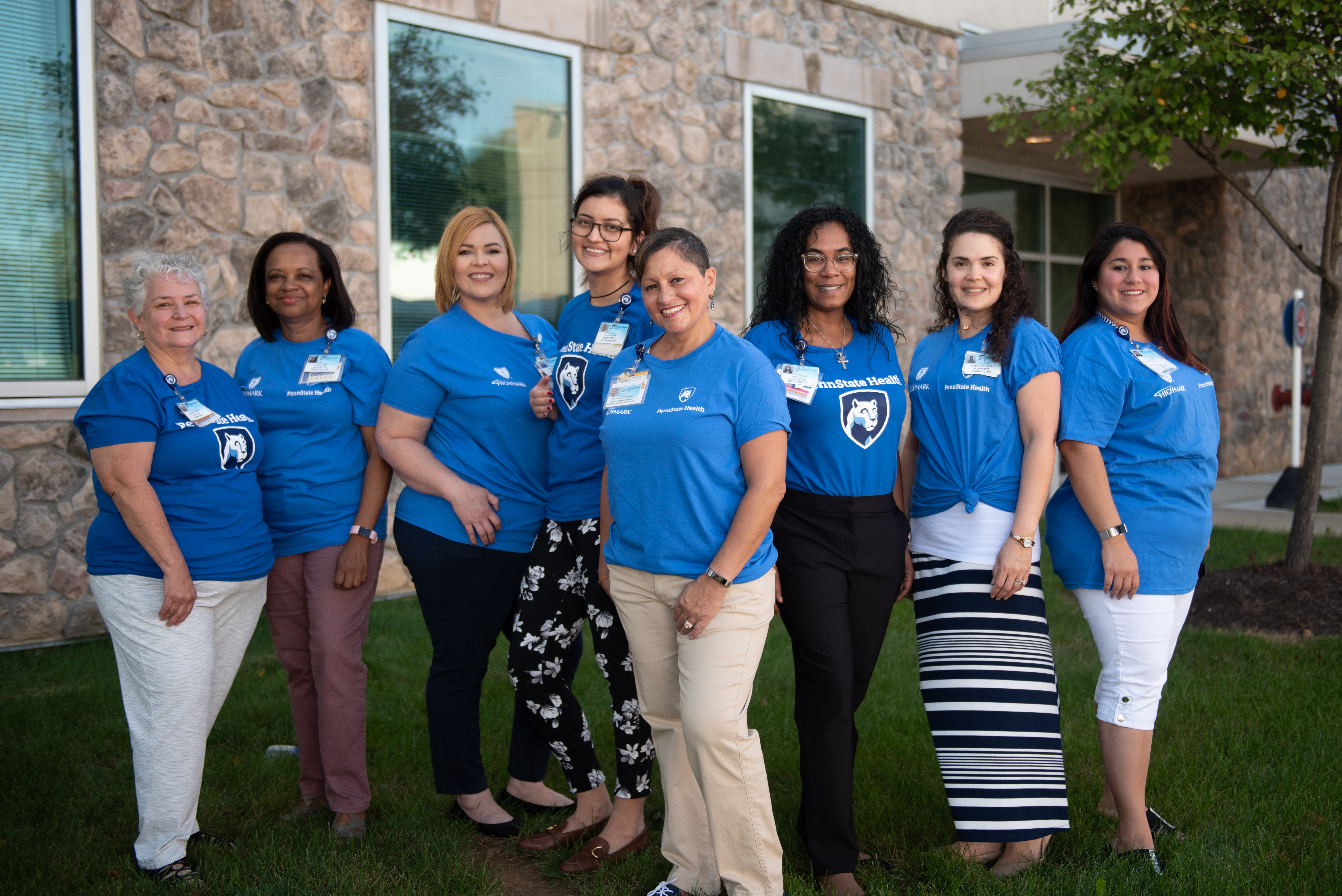Penn State Health St. Joseph interpreters grow in diversity and number

With seven onsite medical interpreters, Penn State Health St. Joseph has more interpreters on staff — driven by a growing demographic — than ever before.
“Each year we complete a community assessment that identifies what the needs are in the communities we serve,” said Diana Santiago-Berry, manager of patient advocacy and interpreter services. “At the Downtown Campus we see a larger population of Spanish-speaking patients. In fact, we have gone from two to three full-time interpreters throughout the day, and we have per diem interpreters who cover crucial time frames, appointments and specialty clinics.”
While in the past it was acceptable to use bilingual staff to interpret, that is no longer possible, according to Santiago-Berry.
“Since passage of the Affordable Care Act, the law requires that interpreters be qualified,” she said. “Qualified medical interpreters should complete a medical terminology assessment and a 40-hour professional medical interpreter course.”
Two of the interpreters on Santiago-Berry’s staff are certified through the National Board of Certification for Medical Interpreters, and the other five are working toward that goal. Within the group, several speak Spanish, two speak French and one speaks Chinese.
“We also have language line phones and iPad video interpreting services, including sign language interpreting, that are available 24/7,” Santiago-Berry said. “In addition, we contract with Berks Deaf and Hard of Hearing to meet the growing patient demand for that service.”
The interpreters who staff Santiago-Berry’s department hail from Puerto Rico, the Dominican Republic, North America, South America and Central America; one has traveled the world doing mission work. Their diverse cultures, individual experiences and education bring added value to their daily interactions, including with their fellow interpreters.
“They all share their experiences,” Santiago-Berry said. “If one of them needs to know more about a patient’s culture and another interpreter has that knowledge, they get together and discuss it. They even post new words they learn on a board in the office, so everyone is aware. It is very unique how they work together.”
Yesmin Valoy, a medical interpreter for St. Joseph since 2001, enjoys the immediate relief her presence brings to her patients.
“I feel a great satisfaction serving the Hispanic community and communicating their health needs to providers,” she said. “It is important to relieve any concerns they have due to language barriers.”
Zoraida Torres, who joined St. Joseph more recently, takes similar satisfaction in her work.
“It is a profound sense of well-being knowing you helped so many people in one day to communicate their wishes in a professional way,” she said. “It is not something you can take lightly.”
If you're having trouble accessing this content, or would like it in another format, please email Penn State Health Marketing & Communications.
